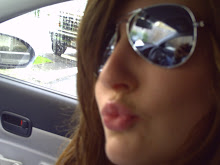A wretched gust blew suddenly in all of their faces and the girls were quieted and the boys even more sombered. Carlos peered out from the laquered wooden window sill and curiously wondered why in hell those wonderful school girls would stop laughing just because of a little wind. But the moment soon passed and again the chatter raced by the window. Above them the Andes cowered ominously and degradingly, their caps gleaming some unspeakable white against the grey sky and whispering to their sea just out of reach. The beer was beginning to hit him harshly and he could feel his cheeks blush and his ears heat up. Nevertheless, he kept his eyes on the crowd and remained nursing the ever-emptying glass before him.
A few hours later and a few more beers, it had turned dark outside but the diner remained perfectly well-lighted. Customers went in an out, the crowed varied as it always did. It was always constant, regardless of tribe, regardless of their make or their model. It was almost eight. Eight was when the streets became empty shells of the lively asphalt ridden ways and avenues they had been during that afternoon. Eight was when everyone turned-in, when the entire city of Santiago fell silent and scared.
It was at this time that Carlos decided to head up into his portion of the city. He bundled himself in his alpaca sweater and threw on his plastic windbreaker and prepared for the journey – at least to find a cab. As he stepped outside the wind instantly threatened his pores and took his breath from him. Winter in Santiago had always been on the colder side (perhaps because the humidity from the ocean could not extend to the area), but this particular winter in 1974 was especially frigid.
As Carlos sat in the back of the cab rubbing his gloved hands together to ignite some sort of feeling in them, he maneuvered himself.
“Barrio Bellavista, Cerro San Cristobal porfa…”
The cab driver, wearing a pauper’s hat made from steely looking wool, glanced in his rear view mirror. His face seemed condensed like it had become the victim of a trash compactor, and his teeth were few. The salt and pepper hair so inherent to the Mapuche plagued this man, and though Carlos knew that they were proud of this, he despised the fact that his father, too, sustained the mark of Chile’s poorest, Chile’s most ignorant, and most restrictive group to his own political beliefs.
“Si, señor. Esta desde aca?” asked the cab driver.
“Si, si, po. Conduzca, porfa.”

No comments:
Post a Comment